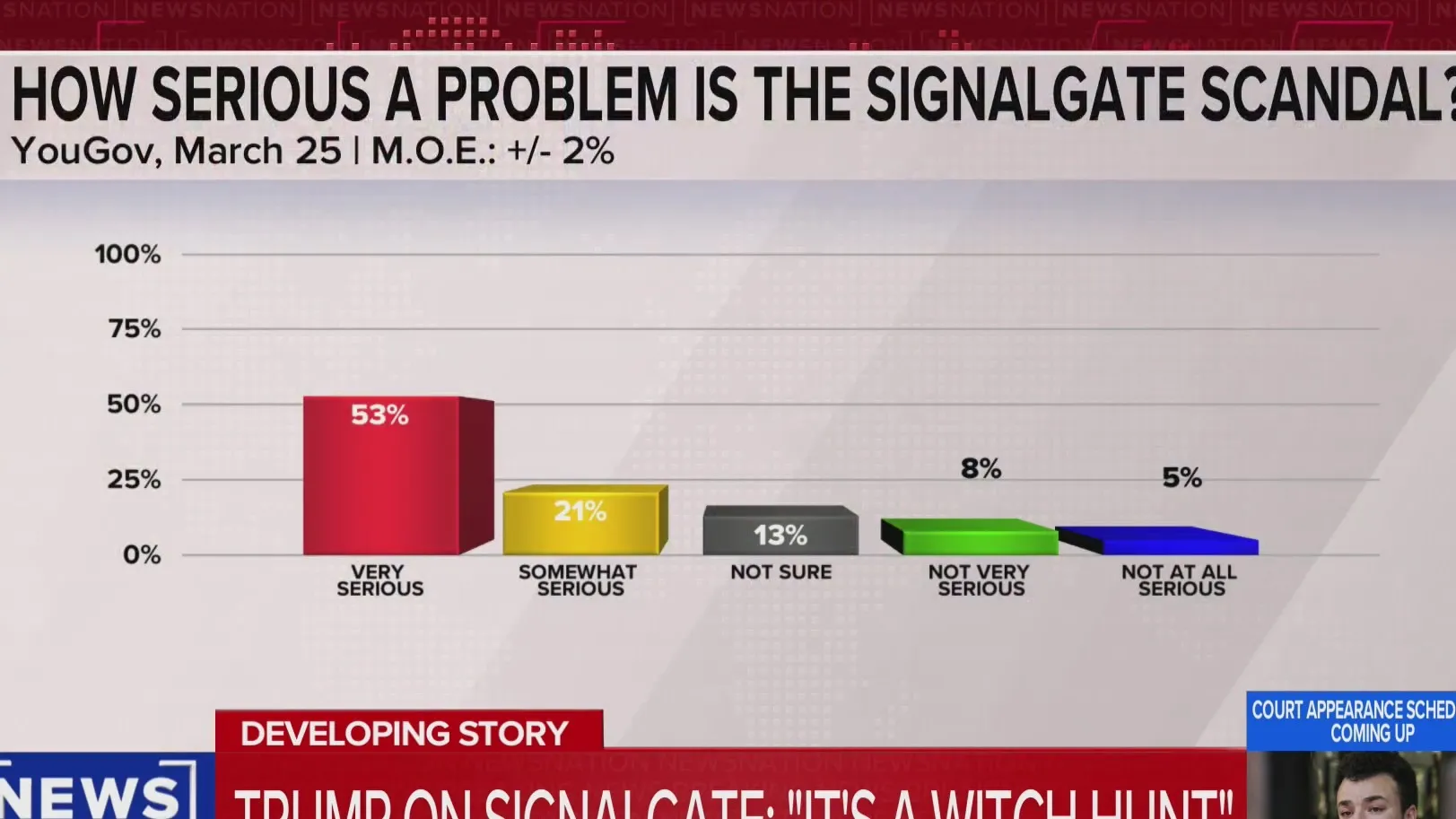Explosive Signal Chat Leak Reveals Trump’s Secret Military Plans!
In a startling revelation, a leak from a Signal chat involving officials from the Trump administration has unveiled sensitive military plans, specifically discussions surrounding U.S. military strikes in Yemen. This incident, which has captured national attention, raises serious questions about the security protocols that govern military communications within the government.
The Atlantic, a prominent media outlet, published the full text messages from the chat, providing an unprecedented glimpse into the private conversations of top Trump advisers. These messages included detailed strategies for military operations, which contradict earlier claims by officials that no classified information was shared. The fallout from this leak has ignited a firestorm of controversy, prompting discussions about the adequacy of communication practices among government officials, particularly regarding national security.
Background of the Incident
The Signal chat leak came to light on March 25, 2025, when The Atlantic released the complete text messages exchanged between key members of the Trump administration. The messages revealed not only plans for military strikes but also the specific timings for these operations. Secretary of Defense Pete Hegseth was noted as a participant in the chat, actively sharing real-time updates about military operations.
Initially, administration officials dismissed the significance of the leak, asserting that no classified information or military risks were discussed. However, the content of the leaked messages starkly contradicts these assertions, raising alarms about the use of unclassified communication for sensitive military topics.
Key Details of the Leak
-
Sensitive Discussions: The chat included conversations about attack strategies against Houthi positions in Yemen, with plans shared just hours before the strikes were set to occur.
-
Contradictory Claims: Despite assurances from officials that no classified information was disclosed, the leaked messages suggest otherwise, leading to skepticism about the administration’s transparency.
-
Inadvertent Inclusion of a Journalist: The leak also revealed that a journalist was inadvertently included in the chat, further complicating the narrative around secure communications within the administration.
-
Calls for Accountability: Following the leak, there have been increasing calls for accountability and a comprehensive review of how sensitive information is handled in informal communication channels.
-
Potential Vulnerabilities: The incident highlights potential vulnerabilities in the communication practices of government officials, particularly concerning national security matters.
Public and Official Responses
The editor-in-chief of The Atlantic, Jeffrey Goldberg, emphasized the gravity of the leak, stating that it underscores significant lapses in the administration’s communication protocols. Despite the administration’s attempts to downplay the leak, it has sparked widespread debate over the security measures in place for military planning.
Critics have voiced concerns about the use of Signal, a messaging app known for its encryption, for discussions of such sensitive nature. They argue that relying on unclassified platforms for military discussions poses a significant risk to operational security and could jeopardize the safety of military personnel involved in the operations.
Implications for National Security
The implications of this leak extend beyond mere embarrassment for the Trump administration. It raises critical questions about the adequacy of existing protocols for safeguarding military communications. As the incident unfolds, discussions about the need for stricter guidelines and oversight in informal communication channels have become increasingly urgent.
Moreover, the leaked messages included expressions of support for military personnel, with officials wishing for their success during the operations. This personal touch, while commendable, contrasts sharply with the serious security implications of using unclassified communication for military planning.
Conclusion
The Signal chat leak involving Trump administration officials has unveiled serious vulnerabilities in the communication practices of government officials. As the public grapples with the implications of this incident, it is clear that the administration’s handling of sensitive military information is under intense scrutiny. The fallout from this leak may significantly influence public perception of the Trump administration’s commitment to national security and its ability to manage sensitive information effectively.
As discussions continue about the need for accountability and improved security protocols, one thing remains certain: the importance of safeguarding military communications cannot be overstated. The lessons learned from this incident will likely shape future policies and practices concerning national security communications in the United States.
This article serves as a reminder of the critical importance of secure communication in government, particularly regarding military operations. As we move forward, it is imperative that lessons are learned to prevent similar incidents from occurring in the future.






Leave a Comment